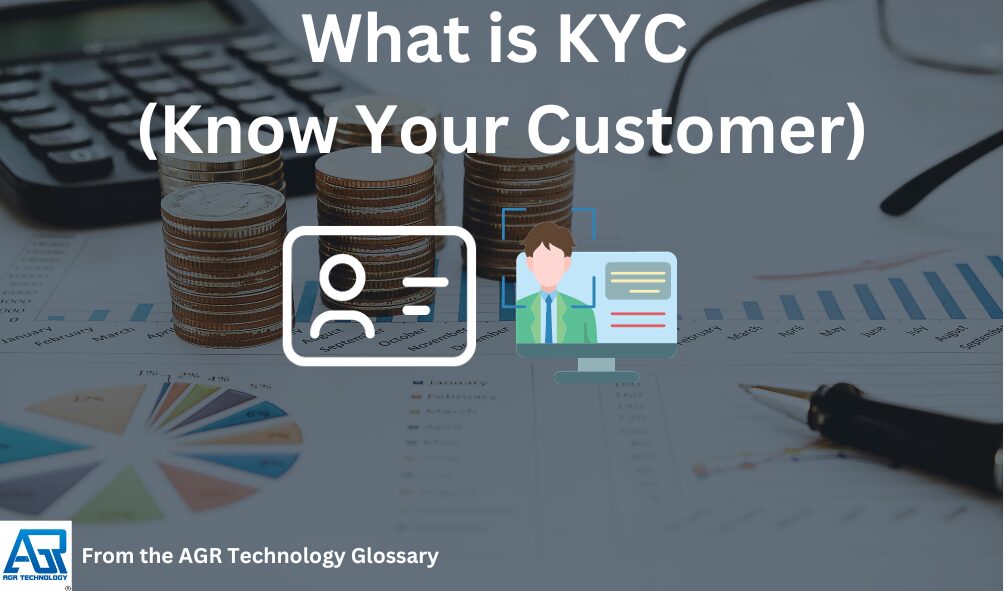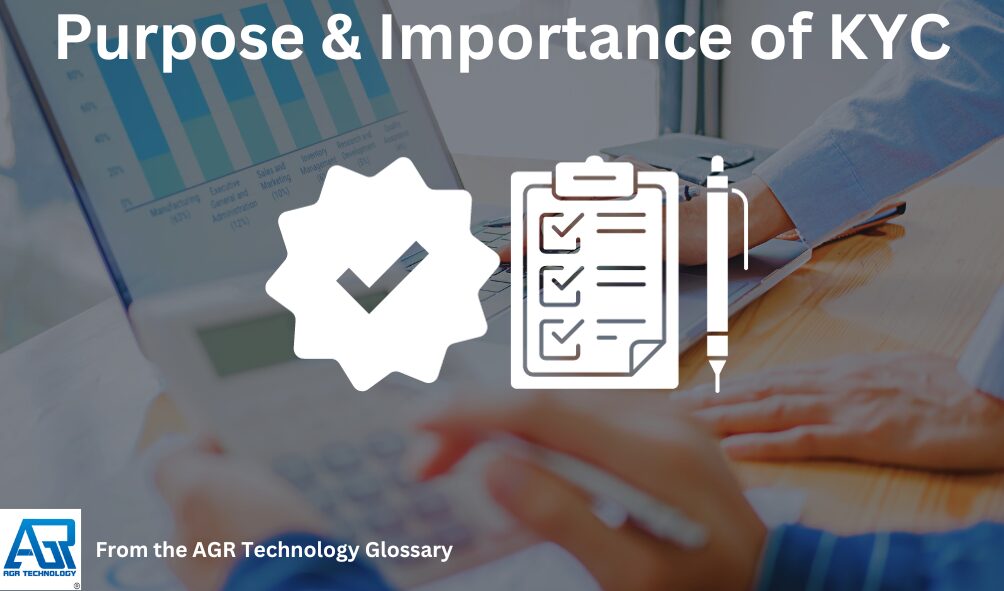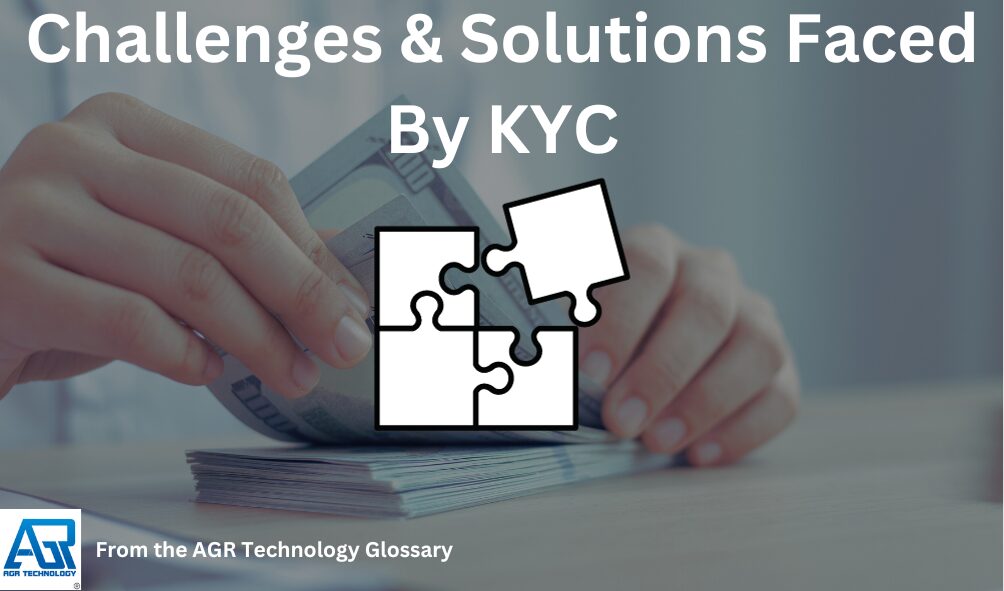Introduction

What KYC Means: Unveiling Customer Identity Verification
Know Your Customer, or KYC, is a regulatory and legal requirement that financial institutions implement to verify the identity of their clients. This process is critical to understanding and managing risks, ensuring that a bank or financial organization is not used as a vehicle for money laundering and other illegal activities. KYC procedures are a fundamental part of anti-money laundering (AML) policies and help institutions gauge customer risk and the potential for financial crimes.
KYC practices are followed by many companies and institutions that operate in the financial services sector as well as leading Australian Cryptocurrency exchanges, Bitcoin apps in New Zealand, UAE Crypto trading apps , Online services to help you buy/sell Crypto in Hong Kong, Online websites and apps to buy/trade/sell Cryptocurrency in Taiwan and services to buy/sell Crypto in Norway.
Financial regulators globally mandate these KYC checks to ensure that financial transactions are transparent and traceable. The growth of digital finance (Fintech) and the increasing need for remote verification have made KYC processes more complex and technologically driven. Banks, brokerage firms, and other financial entities utilize a range of methods for gathering necessary information, including identification documents, financial history, and the nature of the customer’s transactions. Through these methods, institutions assess whether their clients are likely to pose a legal or financial risk. Whilst the process is often quite similar across different countries each often has their own requirements which can differ.
Furthermore due to the complex and ever-changing landscape of finance and other sub-sections such as Cryptocurrencies and stocks which can fluctuate daily there is risk that is presented to end-users and as a result regulation is in place to help protect individuals and investors alike with KYC been a very common measure used.
Key Takeaways from this page:
- KYC verifies client identity and assesses risk in the financial sector
- How it is a critical element in global AML policies
- Technological advancements are shaping modern KYC processes
Concept of KYC (Video explainer)
History and Evolution

The origins of KYC date back to the late 20th century, with significant growth post-9/11 due to increased concerns over terrorist financing and money laundering. Since then, KYC regulations have evolved substantially, influenced by advancements in technology and the global emphasis on anti-money laundering (AML) efforts and combating the financing of terrorism (CFT).
Purpose and Importance

The fundamental purpose of KYC measures is to prevent fraud, money laundering, and terrorist financing by having clear and thorough knowledge of customers’ identities and financial activities. Financial institutions are required to implement KYC protocols not only to comply with regulatory requirements but also to maintain the integrity of the global financial system.
Regulatory Framework

The Regulatory Framework for KYC is shaped by global standards and regional regulations which enforce the identification and risk assessment of customers by financial institutions.
Global KYC Standards
Global KYC standards are set forth by international bodies such as the Financial Action Task Force (FATF). These standards provide guidelines to combat money laundering and terrorist financing. Financial institutions must adhere to these standards by performing due diligence to identify their customers and assess the associated risks.
Regional Compliance Requirements
Regional compliance requirements vary depending on the jurisdiction of the financial institution. For example, in the European Union, the Fourth Anti-Money Laundering Directive (AMLD) dictates specific KYC requirements. In the United States, KYC falls under the Bank Secrecy Act (BSA) and the USA PATRIOT Act, which require financial entities to have robust customer identification programs in place.
In Australia KYC processes are regulated by AUSTRAC and are very similar in how they regulate banks and financial bodies.
KYC Process
The KYC process is an integral part of financial regulation designed to prevent identity theft, financial fraud, money laundering, and terrorist financing. This stringent process ensures that banks and financial institutions verify their customers’ identities and assess potential risks of illegal intentions.
Customer Identification Procedures
To begin the KYC process, Customer Identification Procedures (CIP) are implemented. These require banks to collect certain information to establish a customer’s identity. It includes obtaining and verifying data like name, date of birth, address, and an identification number, typically from a government-issued ID like a drivers license or passport.
Customer Due Diligence
Next, institutions perform Customer Due Diligence (CDD) to gather detailed information about the customer’s activities. The objective of CDD is to predict the customer’s behavior and assess the risk level. CDD includes monitoring financial transactions and understanding the purpose of the relationships established with the bank. This may also involve checking if the customer is a politically exposed person which may require further compliance.
Enhanced Due Diligence
For higher-risk customers, Enhanced Due Diligence (EDD) is a more thorough examination. EDD measures go beyond CDD by obtaining more extensive information about the customer to establish a deeper understanding of their business, ownership structure, and the types of transactions they are likely to conduct.
Technologies utilized in KYC processes

Know Your Customer (KYC) processes have evolved with advancements in technology, leading to more efficient and secure ways to verify customer identities and assess their risk profiles.
Digital KYC Solutions

Digital KYC solutions have streamlined the process of identity verification. For instance, these systems allow institutions to capture customer data quickly via electronic means, such as scanning official documents or using biometric options like face or fingerprint recognition. They have become especially crucial for online account opening, where physical document verification isn’t feasible. Digital KYC solutions can support real-time data checking against public and private databases to reduce the risk of fraud.
Role of AI and Machine Learning

The implementation of AI and machine learning in KYC processes has brought significant improvements in detecting and preventing financial crimes. AI algorithms can analyze large amounts of data to spot patterns that might suggest fraudulent activity. Machine learning, on the other hand, continuously improves these detection algorithms by learning from new patterns of behavior. This technology reduces the need for manual review, leading to more accurate risk assessments and enhanced compliance with regulatory requirements.
Challenges and Solutions

In the realm of KYC, institutions face the dual challenge of safeguarding data privacy while providing a smooth customer experience. Efficiently overcome these challenges is crucial to maintaining compliance and competitive edge.
Data Privacy Concerns
One key challenge is the security and privacy of sensitive customer data. As KYC processes entail collecting substantial personal information, ensuring this data remains protected is paramount. For instance, regulatory technology solutions are proposed to mitigate the risk of data breaches by employing advanced encryption and secure data storage techniques. It’s also important for companies to keep up-to-date of changing data protection regulations to avoid penalties.
- Approaches that can be used:
Balancing Security and Customer Experience
Another significant challenge is maintaining high-security standards without compromising customer experience. Often, thorough security checks can lead to lengthy and complex KYC processes, deterring potential customers. Banks and financial institutions are advised to employ the right analytics and improve data collection quality to streamline processes without sacrificing security. Automating parts of the KYC process could also assist in achieving this balance.
- Approaches that can be used:
- Use of analytics to streamline collections
- Automated KYC verification steps
Frequently Asked Questions
Here are some commonly asked questions about the topic along with answers to each:
What are the essential components involved in the KYC process?
The KYC process typically involves identity verification, risk assessment, and ongoing due diligence to track the behavior of the customer over time. This ensures the authenticity of customer transactions and helps in mitigating potential fraud.
Why is adhering to KYC regulations critical for businesses?
Adhering to KYC regulations is critical as it helps prevent identity theft, financial fraud, money laundering, and terrorist financing. Businesses reduce their risk of legal penalties and reputational damage by complying with these regulations.
How can individuals complete their KYC verification online?
Individuals can complete their KYC verification online by providing personal information and submitting the requisite identification documents through a secure platform. Many institutions facilitate this with a simplified user interface for a more efficient process.
What documents typically comprise a KYC checklist for individual customers?
A KYC checklist for individual customers generally includes a government-issued ID card, passport, or driver’s license for identity verification, and recent utility bills or bank statements for address verification.
What constitutes the end-to-end KYC process for corporate clients?
The end-to-end KYC process for corporate clients involves identifying the business entity, its beneficial ownership, understanding the nature of the business activities, and evaluating the corporate structure for any potential risks.
How does KYC legislation influence customer due diligence?
KYC legislation sets the framework for customer due diligence, requiring businesses to collect and analyze detailed information to verify a customer’s identity and assess their profile against potential risks before establishing or continuing a business relationship.
Further content on our website:
Altcoin (Alternative crypto coins)
List of platforms to help you accept Cryptocurrency payments on your website
Digital Wallets / Smart Wallets
DAO (Decentralized Autonomous Organization)
Dapp (Decentralized Application)
Summary of top Australian loan providers & apps
Online price aggregator for popular Cryptocurrencies
What is market analysis in the context of Cryptocurrencies?
Commercial loan brokers & platforms for Sydney businesses – curated list of providers
Blockchain Explorer Definition
What are Initial Exchange Offerings (IEOs)
Guide to choosing quality CFD investment software in Dubai and the UAE area
Curated summary of some of the best Cryptocurrency apps & platforms for Singapore users
Net worth calculator – online tool
Mortgage affordability calculator – online tool
Some of the best CFD brokers in Australia
Online CFD Trading Platforms & Applications For Australians (Top Rated Options)
Top-rated Cryptocurrency exchanges & applications for India
Crypto exchanges for South Africans
Some of the top-rated Cryptocurrency exchanges & apps for Saudi Arabia
Some leading best small business loan/financing providers for Perth businesses
Top-rated Alternatives to Etoro for Australian CFD traders
Top Alternatives to Swyftx for Australian Crypto users
Some of the best Cryptocurrency exchanges/apps for Canadians
Different commercial loan brokers for Melbourne businesses
Collection of some of the best day trading platforms for Australians
ICO Marketing Solutions to help brands capture more online reach
CMC Markets Alternatives for Australian end-users wanting to start trading
Coinspot alternatives platforms Australians wanting to get started with Cryptocurrencies
Services to help you recover lost Crypto from your devices
List of some top Etoro alternatives for Australian forex traders
What to look for when choosing a neobank app
Web3 Marketing Services By AGR Technology to help brands reach more users
Web3 Software Development Services
NFT Digital Marketing Services
(Tutorial) How to buy Cryptocurrency in Australia
Platforms to earn interest on your Cryptocurrency assets
How to buy Bitcoin or other Cryptocurrency assets online
Top stock market trading platforms Australia
Source(s) cited:
KYC (Know Your Customer) Definition, Guidelines & Regulations [Online]. Okta. Available at: https://www.okta.com/identity-101/kyc/ (Accessed: 4 January 2024).
“Know your customer” Wikipedia, 6 June 2005, en.wikipedia.org/wiki/Know_your_customer. Accessed 4 Jan. 2024.
https://th.bing.com/th/id/OIP.eaKWVJWMkCMW5OBT_JWGfQAAAA?rs=1&pid=ImgDetMain. Accessed January 4, 2024.
[Online]. Available at: https://www.researchgate.net/profile/Abdalah-Kileo/publication/305994472/figure/download/fig1/AS:392998358667264@1470709518058/Key-elements-of-regulatory-frameworks-Adopted-from-the-IAEA-preentations.png (Accessed: 4 January 2024).
Image by <a href=”https://pixabay.com/users/geralt-9301/?utm_source=link-attribution&utm_medium=referral&utm_campaign=image&utm_content=7328583″>Gerd Altmann</a> from <a href=”https://pixabay.com//?utm_source=link-attribution&utm_medium=referral&utm_campaign=image&utm_content=7328583″>Pixabay</a>
QR Code of this page for mobile users:

![logo-new-23[1] logo-new-23[1]](https://agrtech.com.au/wp-content/uploads/elementor/thumbs/logo-new-231-qad2sqbr9f0wlvza81xod18hkirbk9apc0elfhpco4.png)